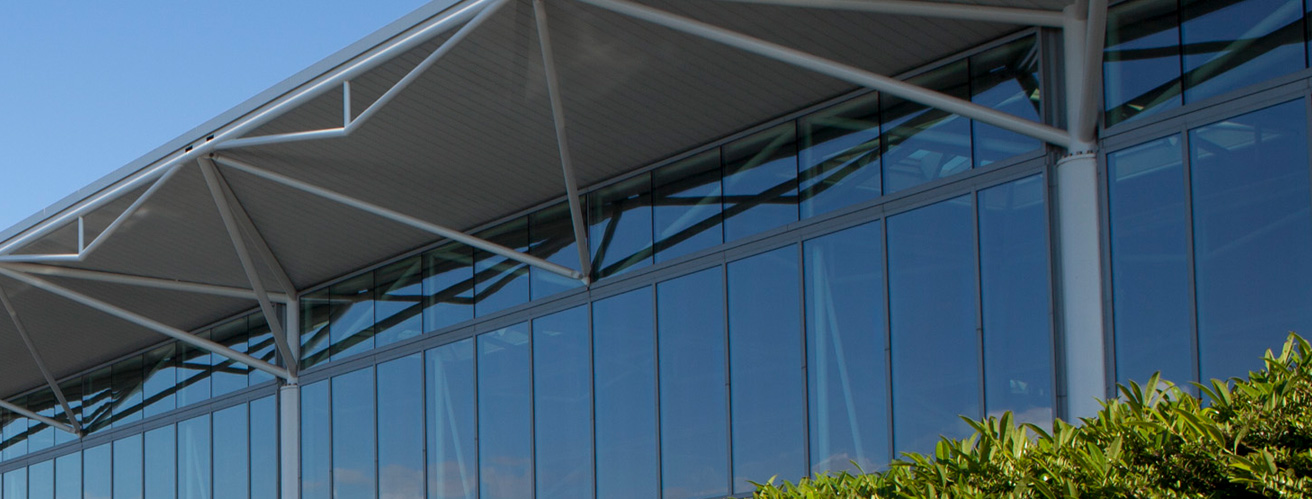Griffiths Farrans JV Awarded Contract for Transformational Public Transport Interchange at Bristol Airport
Created: 23rd Nov 2023Griffiths Farrans JV has been awarded a contract to deliver a transformational public transport Interchange as part of Bristol Airport’s largest capital project ever.
- £60m+ investment
- New public transportation interchange
- Additional multi-storey car park
- Glazed bridge link between the car parks and terminal
- Elevating customer comfort with a new waiting area and rest facilities
- Enhanced customer facilities including an enlarged Drop Off and Pick Up area
The £60m investment will create a public transport interchange and multi-storey car park to enhance services and accessibility for customers arriving or departing from Bristol Airport.
Enabling works started in May to divert services and work has now begun to construct a new access ramp to the existing remaining car parks.
The project forms part of Bristol Airport’s overall multi-million-pound transformational development plan enabling 12 million passengers a year to use the Airport. It will provide a significantly enlarged public transport interchange, improved internal road system and an additional multi-storey car park providing customer enhancements such as waiting rooms and rest facilities.
The public transport interchange will provide access for coaches, buses and other forms of public transport on the top level of the multi-storey car park. The public transport interchange will more than double the number of bus/coach bays to 16 bays, enabling the Airport to be one of the region’s largest bus/coach interchanges.
The top level of the car park will also provide a dedicated Drop Off and Pick-up location for family, friends or taxis and a new gateway for all customers, with ease of access to the terminal.
The multi-storey car park will provide over 2000 spaces; state of the art technology; blue badge parking; and will adjoin the existing multi-storey car park. The terminal will be accessed via a glazed pedestrian bridge link on the same level.
Dave Lees, CEO, Bristol Airport, said:
“This project is transformational for our customers. It is the largest single capital investment project since the terminal opened in 2000 and will take 18 months to complete. As with all large-scale projects, they are complex and the development work will need to be phased to accommodate the normal day to day Airport operations. During the project, customers will see several temporary changes taking place, including temporary relocation of some car parks and changes to internal roads layouts. We will continue to keep customers informed of the changes via directional signage, customer messaging on car park bookings, the website and on social media.”
Simon Dunn, Pre-Construction Director, Griffiths Farrans JV, said:
“Griffiths and Farrans have worked in partnership with Bristol Airport and fellow CRH business Tarmac to deliver the optimum solution for the Airport, with a keen focus on sustainability. Over 100,000 tonnes of excavated material will be processed into suitable material for use in the project. All asphalt materials removed from the existing car park will also be processed for re-use within the asphalt material that will be provided for the perimeter roads.
“This project is a great example of what can be achieved when both client and contractor work in an open and collaborative way, something that has been instilled in the project team from day one.”
Glenn Gilmore, Regional Director, Griffiths Farrans JV, said:
“We are looking forward to getting started with this exciting project which will play a significant role in the step change of Bristol Airport as it elevates its offering to support new air links and increase inbound tourism. The vision for the future is one with sustainability, safety and enhanced customer experiences at the heart of it. Griffiths Farrans JV has extensive experience within the aviation sector providing intelligent construction and civil engineering solutions across the UK.
“Throughout this project we will be engaging on a calendar of social value activities which will maximise our use of local supply chain, create apprenticeships and employment opportunities as well as engage with colleges, schools and the voluntary and community sector to leave a positive lasting legacy in the area.”

